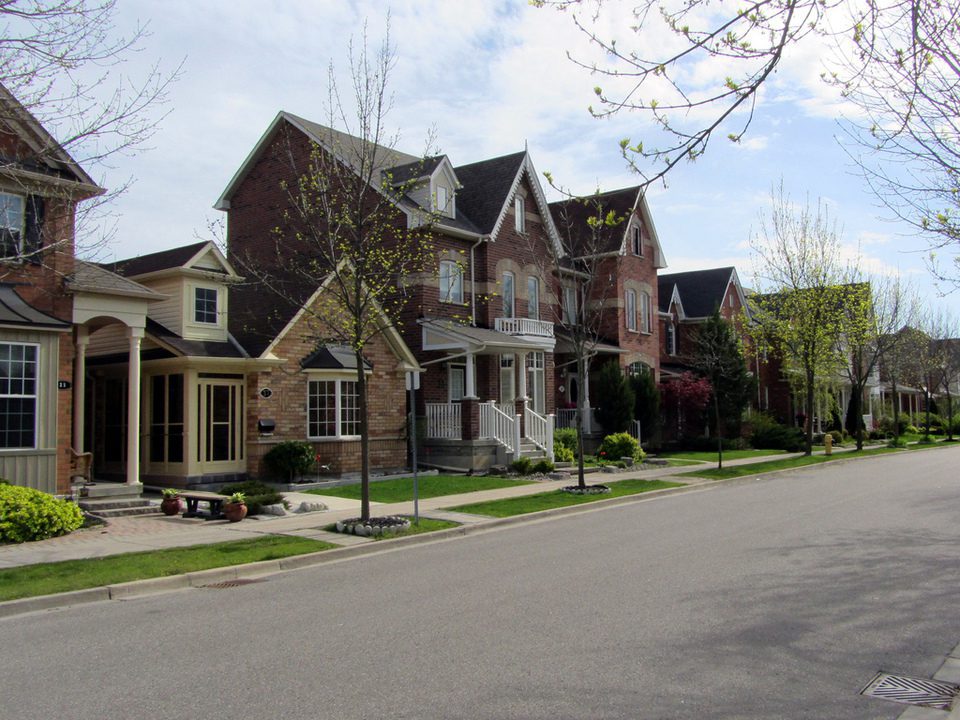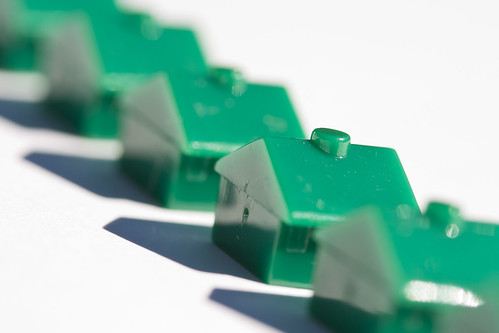It might seem that the best option for every homeowner is to pay off a mortgage as soon as possible and relieve some stress. A report by the Canadian Association of Accredited Mortgage Professionals released in May 2013 found that Canadians pay off their mortgages in about two-thirds of the time originally intended. However, there’s also another possibility — refinancing, which allows you to get lower interest rate, consolidate debt, or tap into home equity. Refinancing is the process of paying the existing mortgage and setting up a completely new one. This process can save a lot of money, but it comes with several expenses and can prolong your mortgage term. So it’s wise to compare the total costs of paying down the mortgage with changing to a new one. Here I give you a brief explanation of some of the possible costs and benefits of both solutions.
When Is it Smart to Refinance?
First of all, keep in mind that refinancing a mortgage doesn’t pay off the debt but restructures it. Refinancing when mortgage rates are low will allow you to decrease your monthly payments and save on the sum you pay during the loan. Apart from saving you money, reducing your interest rate also increases the rate at which you build equity in your home. If you’ve considerably lowered your interest rate and monthly payments, you can also decrease the length of your mortgage term by paying more every month. The amount you pay overall will still be lower than the sum you would pay with your original mortgage.
Refinancing allows you to choose a new mortgage product that will better suit your requirements. If you have an adjustable-rate mortgage and interest rates are increasing, then you should prefer to get out of the adjustable-rate mortgage. On the other hand, if you have a fixed-rate mortgage and interest rates start to decline, you should change to an adjustable-rate mortgage, with the periodic rate adjustments resulting in smaller monthly payments.
Houses by woodleywonderworks
Plus, refinancing can allow you to access up to 80 per cent of your home’s value that you can then use to cover expenses such as remodelling or investment. Another reason why homeowners refinance is to consolidate their debt. Refinancing allows you to replace a high-interest debt such as on credit cards or cars with a low-interest mortgage and at the same time consolidate a number of payments in one.
I recommend that you refinance your mortgage when you plan to stay in the house for some time. Charles Delaney, associate professor of finance and director of the real estate program at the Hankamer School of Business at Baylor University in Waco, Texas, suggested,
“You have to look at the savings relative to the cost, and then consider: How long am I going to be in this property?”
You have to consider different costs, like a prepayment penalty for breaking mortgage terms, an application fee, a loan processing fee, a document preparation fee, an appraisal fee, an inspection fee, legal costs, insurance, and additional costs associated with refinancing. It’s important to figure out how long it would take to recoup these costs. In his book The Mortgage Kit, Thomas C. Steinmetz recommends,
“The industry rule of thumb — ‘refinance when you can lower your interest rates by 2 per cent or more’ — no longer is correct… It makes sense to refinance if you can recover your costs and make a decent return on your investment before you plan to sell your house or pay off your mortgage.”
Plus, the right time for refinancing depends on the status of your current mortgage, as you’ll be starting all over again with a brand new mortgage. A general rule is, the longer you’ve had your present mortgage, the less advantageous it is to refinance — especially if there’s a small difference between the rates. If you’re extending the mortgage term with a lower interest rate, you can still end up spending more in interest. To find out whether it’s advantageous to refinance with a loan term extension, you should calculate the interest savings on the new loan with the same term as the old one as well as the interest savings on the new loan with the length of your planned refinance and compare the two figures.
Home Red by nikcname
Refinancing means undergoing the same process you went through when you got your current mortgage, so you have to get all your records together and make sure your credit score and report are respectable. A good payment history will increase your chance of successful refinancing.
When Should You Pay Off Your Mortgage?
The main reasons for paying off your mortgage as soon as possible are saving money and getting peace of mind. Whether you should pay off your mortgage depends on your goals. If you consider your house an investment that may appreciate, then you might want to continue borrowing money and investing if it brings you a higher return. However, if you consider your house your home — something more than an investment that may or may not guarantee you return — then you should pay off your mortgage and relieve yourself of the mortgage stress. Emily Larimer, a CGA (certified general accountant) who runs a Toronto-based sole proprietorship, remarked,
“Your biggest asset is your house. And you want to pay off that loan because you want to eventually pay yourself rather than the bank. And you’re building equity which you can eventually use to do other things.”
Many people claim that paying off your mortgage is worse than refinancing in the long run, since you lose money you could get from your investments. However, you’re not guaranteed to get a higher return on your investment. Paying off your mortgage is a safe bet that provides you the security of having a place to live. Most people buy a home so that they can live in it, and even if its value increases, they don’t want to sell.
Before you start spending extra money to pay down your mortgage, you should consider that there are other costs with a higher priority than your mortgage. Greg McBride, a senior financial analyst with Bankrate.com, pointed out,
“Paying off the mortgage becomes a higher priority later in your career, after you’ve amassed sufficient savings for emergencies, after you’ve paid off other debt, after you’ve put the kids through college, and after you’ve spent years accumulating your retirement nest egg on a tax-advantaged basis. All are higher priorities than pouring more money into a low-cost, tax deductible debt like a mortgage, particularly when rates are as low as they are today.”
Once you decide to pay off your mortgage, you have several options. First of all, you can accelerate your payments by switching from monthly to bi-weekly payments. Bi-weekly payments will allow you to pay down more of the principal each year, shortening the total repayment period of your mortgage. Another useful and harmless way is rounding up your mortgage payments. Rounding your monthly or bi-weekly payments to the next hundred won’t make a huge difference on your monthly budget but will be noticeable on your mortgage. If you have a closed mortgage, you can repay as much as 10 per cent of the borrowed amount at any time during each calendar year. Moreover, at each regular payment date, you can make an additional payment that’s equal to or less than your regular payment.
Deciding for Yourself
Generally, there isn’t a clear answer to the question of whether it’s better to pay down your mortgage or refinance. Both solutions have their pros and cons and whether the decision is right depends on your current circumstances. Continually refinancing your mortgage makes sense when you want to reduce your total payment and make more money in the long run. But if you find the comforts of your home more enjoyable if it’s you, not the bank, who owns it, then you should pay off your mortgage and sleep well at night.





